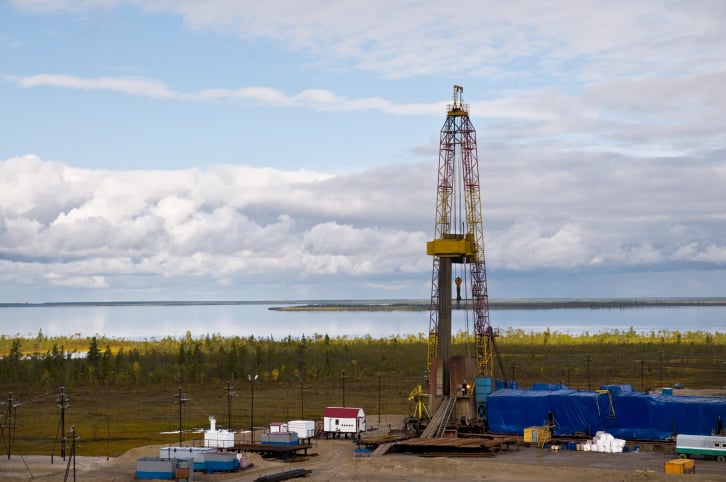Energy
More Oil, Higher Natural Gas Prices Pump Up Chesapeake Earnings
Published:
Last Updated:

On a GAAP basis, first quarter EPS totaled $0.02 a share, compared with a net loss of $0.11 per share in the same period a year ago. Excluded from quarterly earnings were an after-tax noncash mark-to-market loss of $94 million on the company’s hedging program and an after-tax charge of $83 million related to retirement expenses and other termination benefits.
Among those paid-out benefits was a “retirement” package worth about $47 million for founder and now former CEO Aubrey McClendon, who left the company April 1.
Steven Dixon, Chesapeake’s acting CEO, said:
We are beginning to see the benefits of our operational strategy shift from identifying and capturing new assets to developing our extensive existing assets and entering a new era of shareholder value realization. Our operational focus on the core of the core is enabling our drilling program to increasingly target the best reservoir rock in each of our key plays. … As a result, we are generating more efficient production growth, stronger cash flow and better returns on capital.
The company posted production of 358 billion cubic feet equivalent of natural gas during the first quarter. Oil production totaled 9.28 million barrels for the quarter, more than 50% more than in the same period a year ago. Liquids now comprise 64% of Chesapeake’s realized revenue, up from 53% in the first quarter of 2012.
The company expects to sell $4 billion to $7 billion worth of assets in 2013, and it already has sold $2 billion worth. According to Dixon:
We anticipate closing our previously announced Mississippi Lime joint venture transaction with Sinopec before the end of the second quarter and expect to sign agreements to sell our northern Eagle Ford Shale assets, the majority of our remaining midstream assets and other noncore properties during the second quarter. These transactions will allow us to fund current capital expenditures and reduce debt.
Consensus estimates call for second-quarter EPS of $0.33 on revenues of $2.92 billion and full-year 2013 EPS of $1.31 on revenues of $11.48 billion. Both estimates have risen since the company reported fourth-quarter 2012 earnings.
The increase is likely due to the rise in natural gas and crude oil prices. Chesapeake’s realized price for a thousand cubic feet of gas in the first quarter came to $4.46, about 10% more than the $4.02 the company was receiving in the first quarter of 2012.
Chesapeake’s realized price for crude oil rose from $92.63 a barrel last year to $94.85 a barrel this year. In the fourth quarter, the realized price for crude was $92.23 a barrel. As crude prices continue to fall, the impact on revenues for the rest of this year could be serious.
Chesapeake’s shares are trading up about 3.7%, at $20.26 in a 52-week range of $13.32 to $22.97. The consensus target price for the shares was around $22.70 before today’s report.
A financial advisor can help you understand the advantages and disadvantages of investment properties. Finding a qualified financial advisor doesn’t have to be hard. SmartAsset’s free tool matches you with up to three financial advisors who serve your area, and you can interview your advisor matches at no cost to decide which one is right for you. If you’re ready to find an advisor who can help you achieve your financial goals, get started now.
Investing in real estate can diversify your portfolio. But expanding your horizons may add additional costs. If you’re an investor looking to minimize expenses, consider checking out online brokerages. They often offer low investment fees, helping you maximize your profit.
Thank you for reading! Have some feedback for us?
Contact the 24/7 Wall St. editorial team.